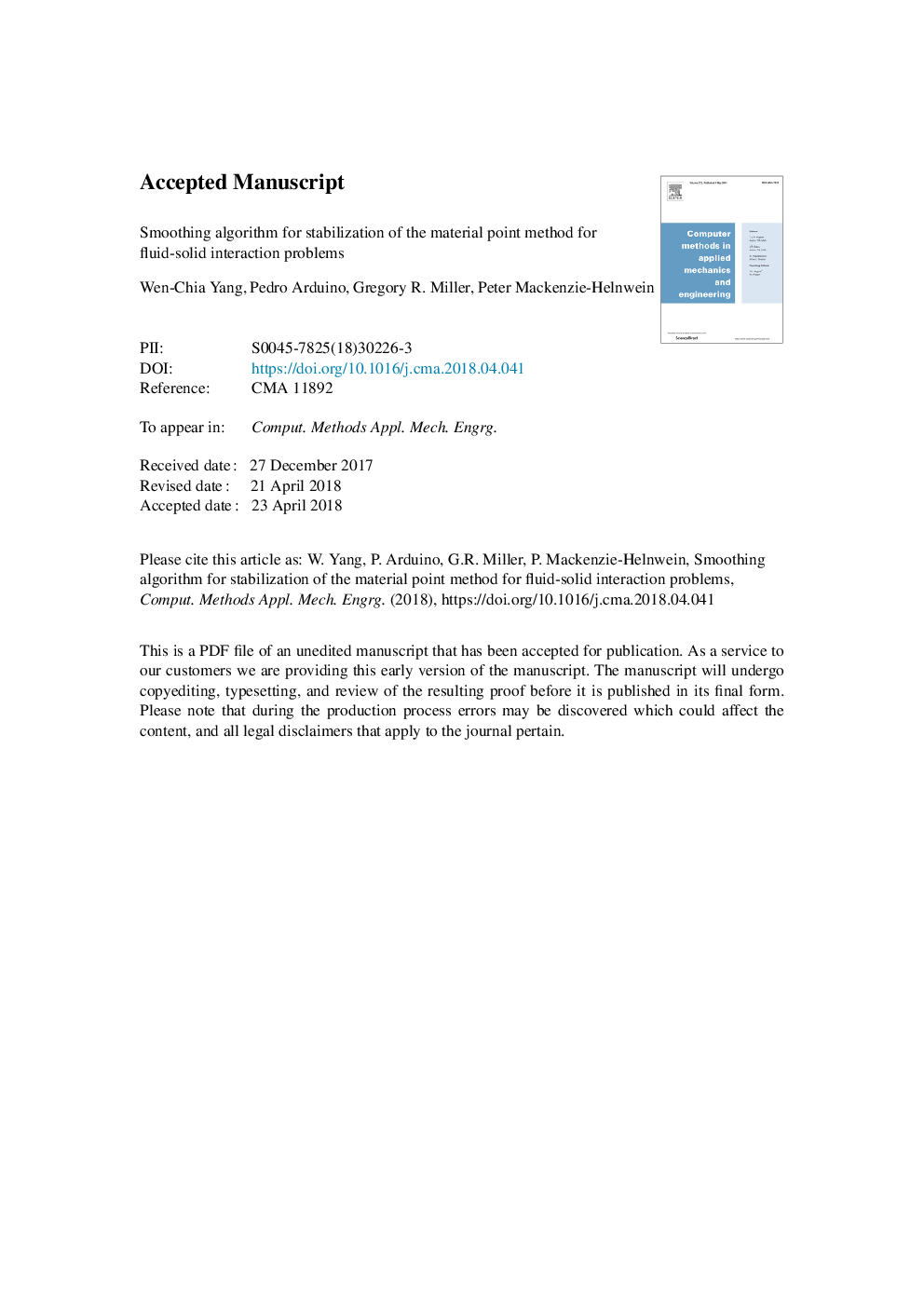| Article ID | Journal | Published Year | Pages | File Type |
|---|---|---|---|---|
| 9952326 | Computer Methods in Applied Mechanics and Engineering | 2018 | 34 Pages |
Abstract
Phenomena involving general solid-water interactions such as flows with debris are challenging to model numerically because they are not easily represented using solid- or fluid-oriented methods. The material point method (MPM) provides a unified multi-material interaction platform potentially capable of modeling complex solid-water flow phenomena. However, it is necessary to address volumetric locking for (nearly) incompressible materials when modeling fluids, while also stabilizing integration errors that arise in standard MPM. This paper examines these challenges in depth, and presents a flux-based smoothing algorithm designed to address integration-error-induced destabilization via controlled strain energy dissipation. The effectiveness of the algorithm is demonstrated with two simple but fundamental fluid/solid problems, and with an application to a complex solid-water dynamic interaction problem. Results show the flux-based smoothing algorithm is capable of stabilizing the side-effects of numerical integration errors, while at the same time remaining inactive if there is no integration-error-induced oscillation. Based on this study, the flux-based smoothing algorithm is suggested as a stabilization scheme for MPM when using constant-interpolated hybrid elements.
Related Topics
Physical Sciences and Engineering
Computer Science
Computer Science Applications
Authors
Wen-Chia Yang, Pedro Arduino, Gregory R. Miller, Peter Mackenzie-Helnwein,
